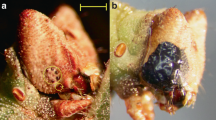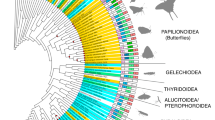Abstract
MR. BACOT's interesting letter (p. 294) on melanism in moths suggests that the moth I had seen in Yorkshire (though I knew it appeared elsewhere) has a “repertoire” of colours as an actor has a repertoire of plays, and each moth in his time plays many parts. But the actor learnt them all, and the moth apparently inherits them all, the result being the same, since each possesses them all, and according to environment each appears occasionally “in yellow stockings and cross-gartered,” or “in customary suits of solemn black,” so that while the actor's knowledge of Hamlet dies with him, the moth's repertoire is perpetuated by an ineradicable involution. The question that lies behind all this does not seem to be answered by reference to the operation of evolution in a “previous epoch,” for evolution begs the question. If we say that evolution in the past packed the “germ plasm” with possibilities, and evolution in the present only unpacks here and there one as it is required, we seem to be illogical in the use of any argument founded upon such an uncertain term, for the evolution of an actor and the evolution of a moth are two totally and impossibly different things, yet the stimulus of environment produces the same results.
This is a preview of subscription content, access via your institution
Access options
Subscribe to this journal
Receive 51 print issues and online access
$199.00 per year
only $3.90 per issue
Buy this article
- Purchase on Springer Link
- Instant access to full article PDF
Prices may be subject to local taxes which are calculated during checkout
Similar content being viewed by others
Author information
Authors and Affiliations
Rights and permissions
About this article
Cite this article
SPICER, E. [Letters to Editor] . Nature 77, 342–343 (1908). https://doi.org/10.1038/077342b0
Issue Date:
DOI: https://doi.org/10.1038/077342b0
Comments
By submitting a comment you agree to abide by our Terms and Community Guidelines. If you find something abusive or that does not comply with our terms or guidelines please flag it as inappropriate.



